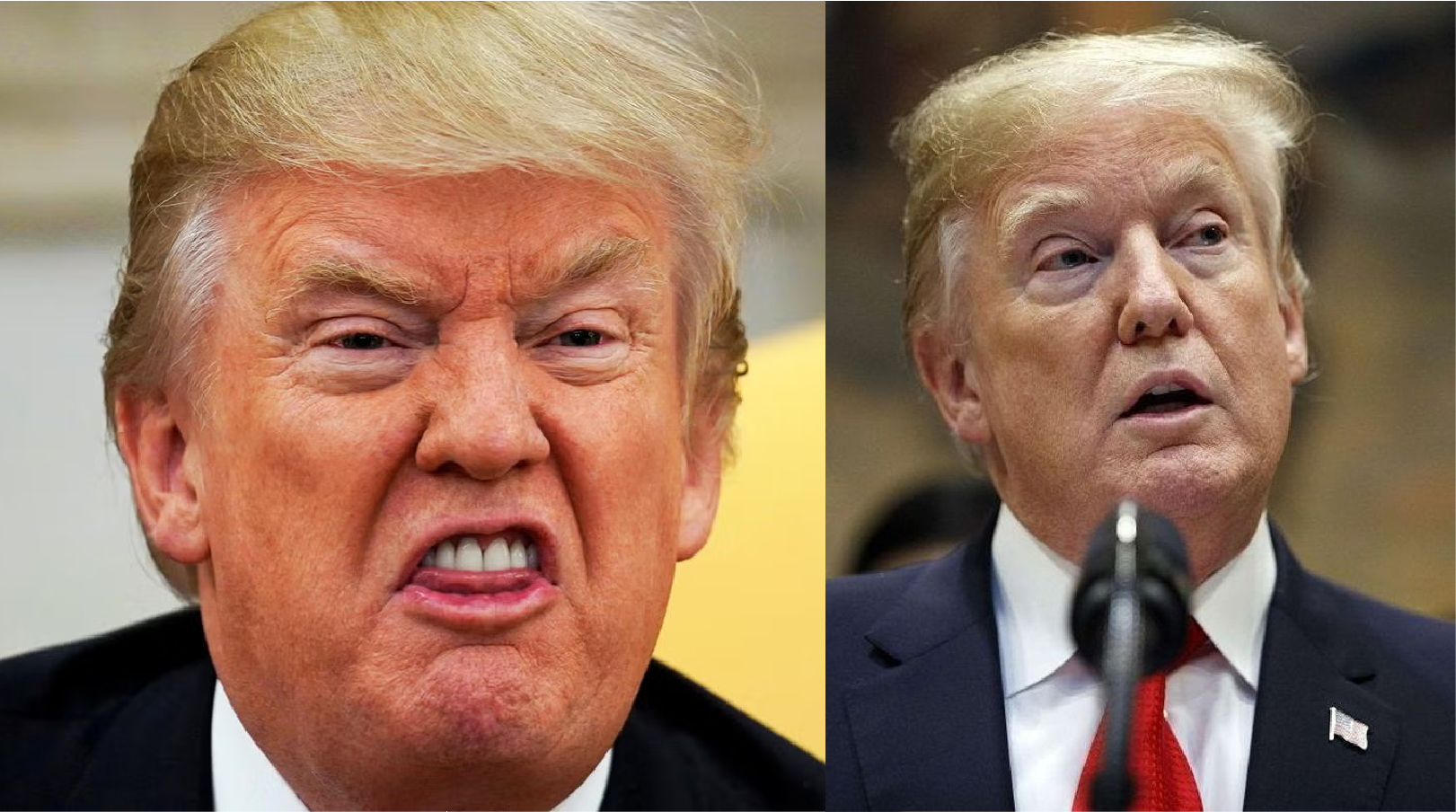Donald Trump, the 45th President of the United States, is a figure who has consistently defied conventional expectations in both business and politics. One aspect of his life that has garnered significant attention, especially in recent years, is his age. Born on June 14, 1946, Trump’s age has been a topic of discussion in the media, among his supporters, and even among his detractors. This article explores how Donald Trump’s age has influenced his political career, his health, public perception, and the broader context of age in American politics.
| Attribute | Details |
|---|---|
| Full Name | Donald John Trump |
| Date of Birth | June 14, 1946 |
| Age | 78 years old (as of 2024) |
| Place of Birth | Queens, New York City, New York, USA |
| Nationality | American |
| Occupation | Businessman, Politician, Television Personality |
| Political Affiliation | Republican |
| Presidency | 45th President of the United States (2017-2021) |
| Historical Significance | Oldest president at the time of taking office (age 70), surpassed by Joe Biden |
| Health | Subject of public and media scrutiny due to age |
| Public Perception | Mixed views; seen as both a symbol of experience and a subject of age-related concerns |
| Potential Future Role | Speculated 2024 Presidential Candidate |
| Notable Achievements | Real estate mogul, reality TV star, author, political leader |
Donald Trump’s Age in Context
As of 2024, Donald Trump is 78 years old. When he first ran for president in 2016, he was 70, making him the oldest person to assume the presidency at that time. This record was surpassed by Joe Biden, who took office in 2021 at the age of 78. Trump’s age has been both a point of criticism and a source of intrigue, as it challenges the traditional views of age and leadership in American politics.
Historically, American presidents have varied widely in age. The youngest president, Theodore Roosevelt, assumed office at the age of 42, while Ronald Reagan, before Trump, was the oldest, beginning his first term at 69 and leaving office at 77. Trump’s age has placed him at the forefront of a broader conversation about the suitability of older candidates for the nation’s highest office.
The Role of Age in Trump’s Political Identity
Donald Trump’s age has played a significant role in shaping his political identity. During his campaigns and presidency, Trump often portrayed himself as a vigorous and energetic leader, countering the narrative that age could be a limiting factor. His rallies, characterized by long speeches and frequent appearances, were designed to showcase his stamina and physical endurance, implicitly challenging any concerns about his age.
Moreover, Trump has used his age as a tool to project experience and wisdom, particularly in contrast to younger politicians. He often emphasizes his decades of experience in business and his deep understanding of American and global affairs, arguing that his age brings with it a level of expertise that younger candidates lack. This narrative has resonated with many of his supporters, who see him as a seasoned leader capable of navigating complex challenges.
However, Trump’s age has also been a point of contention. Critics have raised concerns about his fitness for office, particularly in the context of the demanding nature of the presidency. The intense scrutiny that comes with being an older leader has led to frequent discussions about his health, mental acuity, and ability to handle the pressures of the job. These concerns are not unique to Trump but are part of a broader dialogue about the role of age in leadership positions, especially in high-stakes environments like the White House.
Health and Fitness in the Spotlight
As with any older politician, Donald Trump’s health has been a topic of significant interest and speculation. Throughout his presidency, there were multiple instances where his health came under the spotlight, such as during his bout with COVID-19 in October 2020. Trump’s handling of the illness and his quick return to the campaign trail were used by his team to reinforce the image of vitality and resilience.
Trump himself has often boasted about his good health, claiming that he has the energy and stamina necessary to fulfill the duties of the presidency. He has also shared medical assessments that emphasize his overall fitness, though these reports have sometimes been met with skepticism by the public and the media.
The focus on Trump’s health is part of a larger trend where the health of older candidates and officeholders is increasingly scrutinized. As life expectancy increases and more people remain active into their later years, the question of whether age should be a limiting factor in political careers becomes more complex. Trump’s presidency has thus contributed to an ongoing conversation about how we assess the health and fitness of political leaders, particularly those who are older.
Public Perception and Media Coverage
The media’s portrayal of Donald Trump’s age has been varied, reflecting broader societal attitudes toward aging. On one hand, some media outlets have highlighted his age as a potential concern, focusing on the challenges that come with leading a nation at an advanced age. This coverage often includes comparisons to other world leaders and discussions about the physical and mental demands of the presidency.
On the other hand, Trump’s supporters and certain media narratives have framed his age as an asset, emphasizing his experience and portraying him as a strong, capable leader despite or even because of his years. This positive framing often includes references to his energy, work ethic, and the idea that his age has endowed him with wisdom that younger politicians lack.
Public perception of Trump’s age is similarly divided. While some voters express concerns about the age of their leaders, particularly in light of the physical and cognitive demands of the presidency, others are less concerned, focusing instead on the policies and decisions that come from the office. In this way, Trump’s age becomes a lens through which broader cultural attitudes toward aging are examined.
The Broader Implications of Age in Politics
Donald Trump’s age is not an isolated phenomenon but part of a larger trend in American and global politics. As the population ages, the number of older individuals in positions of power is increasing. This trend raises important questions about the implications of age for leadership, decision-making, and public policy.
In the United States, the trend of older politicians extends beyond the presidency. The current Congress includes many members who are well into their 70s and 80s, and the Supreme Court has also seen justices serve into their advanced years. This reality prompts discussions about the balance between experience and the potential challenges that come with aging, such as health issues or shifts in cognitive abilities.
Globally, older leaders are also becoming more common, with several nations being led by individuals in their 70s or older. This global context suggests that the question of age in leadership is not unique to the United States but is part of a broader shift as societies grapple with the realities of an aging population.
The Future of Age and Leadership
Looking forward, the conversation about age and leadership is likely to continue, particularly as life expectancy increases and more people remain active into their later years. The question of whether age should be a factor in assessing a candidate’s suitability for office will remain pertinent, with arguments on both sides.
On one hand, there is a case for valuing the experience, wisdom, and perspective that older leaders bring to the table. On the other hand, there are legitimate concerns about the physical and cognitive demands of high-stress roles, especially as leaders enter their late 70s and beyond.
For Donald Trump, his age will continue to be a significant aspect of his public identity, particularly if he chooses to run for office again or remain an influential figure in American politics. His experience highlights both the opportunities and challenges that come with leading at an advanced age, contributing to a broader understanding of what it means to lead in the modern world.
Conclusion
Donald Trump’s age has been a defining element of his political career, shaping both public perception and media narratives. As he continues to play a prominent role in American politics, his age serves as a focal point for discussions about the role of older individuals in leadership positions. While his age has raised concerns about health and fitness for office, it has also been leveraged as a symbol of experience and resilience.
Read more: Crazyjamjam Fapello: Unveiling the Internet Phenomenon and Its Impact




